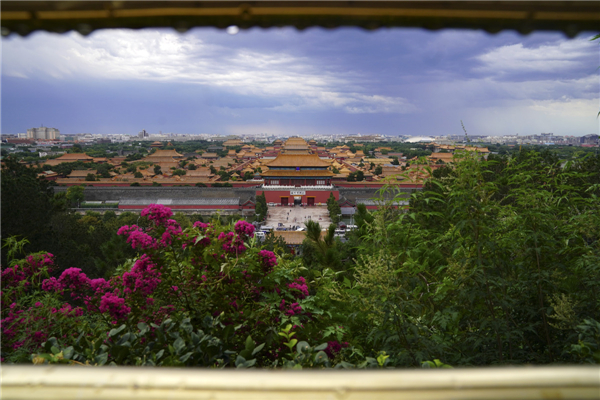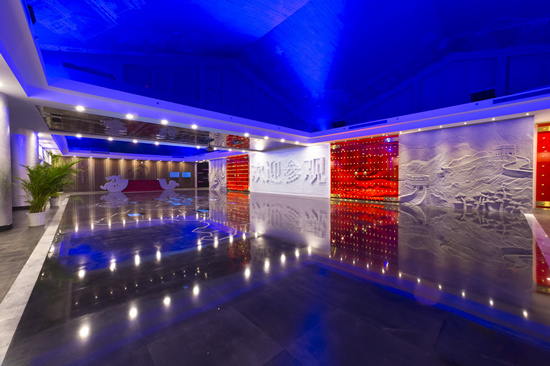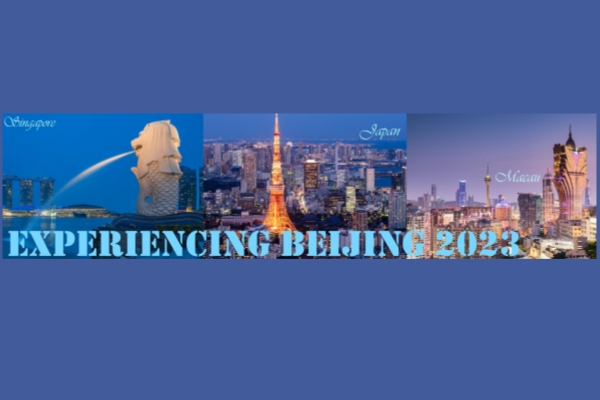Beijing takes road to future

Part of Beijing's core area, including the Palace Museum, is seen from Jingshan Park. [Photo/FENG YONGBIN for CHINA DAILY]
Core area plan stresses green living, cultural preservation
Beijing office worker Cui Yuedong, 24, who came to the city for a job after graduation, has high hopes after reading the detailed plan for the core area of the capital.
The plan, for 2018-35, aims to provide the area with sufficient working space to support central government activities, along with first-class living conditions for residents. The capital's rich cultural heritage will also be showcased.
"Beijing will become an 'easy' city in 2035-that's what I can see from the plan. Easy, but not simple," said Cui, who graduated from Yichun University in Jiangxi province last year and handles paperwork for a local community in Beijing.
"I have always found Beijing attractive because of its deep-rooted culture, inclusiveness and numerous opportunities, which have given me hope for the future," he said.
"The plan sets a clear path for the city and outlines ways to achieve targets. I believe it will become a great capital city, as envisaged."
Last year, the population of Beijing stood at more than 20 million and the city's annual GDP was more than 3.5 trillion yuan ($512.4 billion).
Li Wenzhao, deputy head of the Beijing Academy of Development and Strategy affiliated with Renmin University of China, said the city's development has always hinged on balancing the relationship between its twin roles of being a city and a capital.
The plan, published on the Beijing Municipal Government website on Aug 30 after being approved by the central government, highlights the capital's role as the nation's political center.
The State Council said the core area is home to most of the nation's political, cultural and international exchange centers, and is also a key zone for the preservation of historical sites.
This 92.5-square-kilometer area, which includes Dongcheng and Xicheng districts, houses the central government headquarters.
To enhance the capital's political role in the core area, the Beijing authorities established a sub-city center in Tongzhou district. Municipal government bodies have relocated to this zone, releasing more space for the central government in the core area.
Yang Baojun, chief economist at the Ministry of Housing and Urban-Rural Development, said the sub-city center will take on more economic activity to ensure the core area plays a full political role.
Zhao Yan, 37, a social worker in Tongzhou, said, "It's a win-win solution, as residents in Tongzhou have seen more job opportunities, a greener environment and a growing economy.
"Tongzhou has changed a lot in recent years. I frequently take my 9-year-old child to the newly-built park because it's only a 10-minute walk away. Admission is free and the park is huge. The area was noisy in the past, but now it's green and quiet."
The only thing Zhao is worried about is education.
According to the plan, more high-quality resources for education, nursing homes and health services will be deployed outside the core area to provide better-balanced services for residents.
Several reputable schools in the core area are building branch campuses in Tongzhou, which will ease Zhao's fears and bring talented teachers to the district.
However, people living in the core area are asking whether it will become a "big, serious place" like the United States capital, Washington DC.
Meanwhile, Tongzhou residents are hoping the district will become an economic growth driver, like New York City.
Li, from the Beijing Academy of Development and Strategy, said: "It's hard to distinguish which part of Beijing is Washington or New York City. The core area will play the role of the country's political center.
"It's also a cultural hub, including both Chinese and local Beijing culture. The area will provide cultural services to the city, the country and the whole world. We simply cannot say it will become an area like Washington. "
Every capital has its own features, combining a host of factors, including politics, history and culture, Li said.
"However, Beijing can learn from other capitals such as Tokyo, London and Paris how to resolve the relationship between 'city' and 'capital', as well as big-city problems," Li added.

 Responsibilities of the SOCAAC
Responsibilities of the SOCAAC Experiencing Beijing 2023
Experiencing Beijing 2023